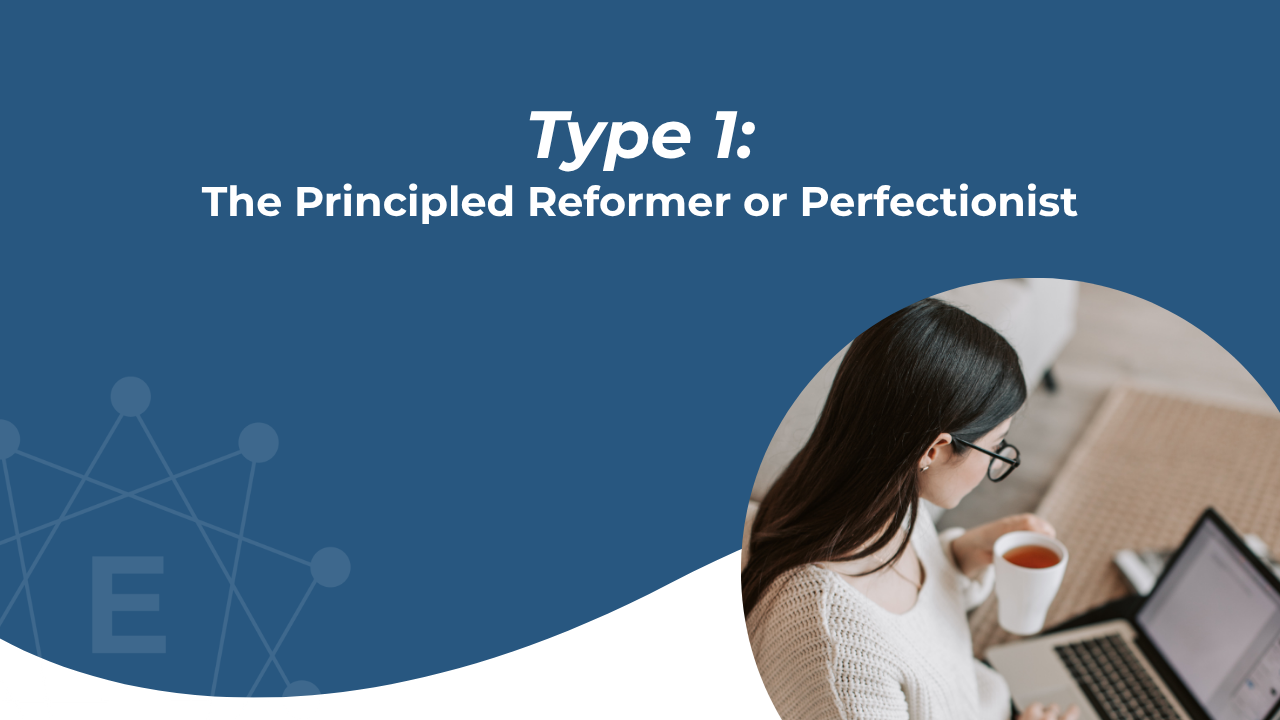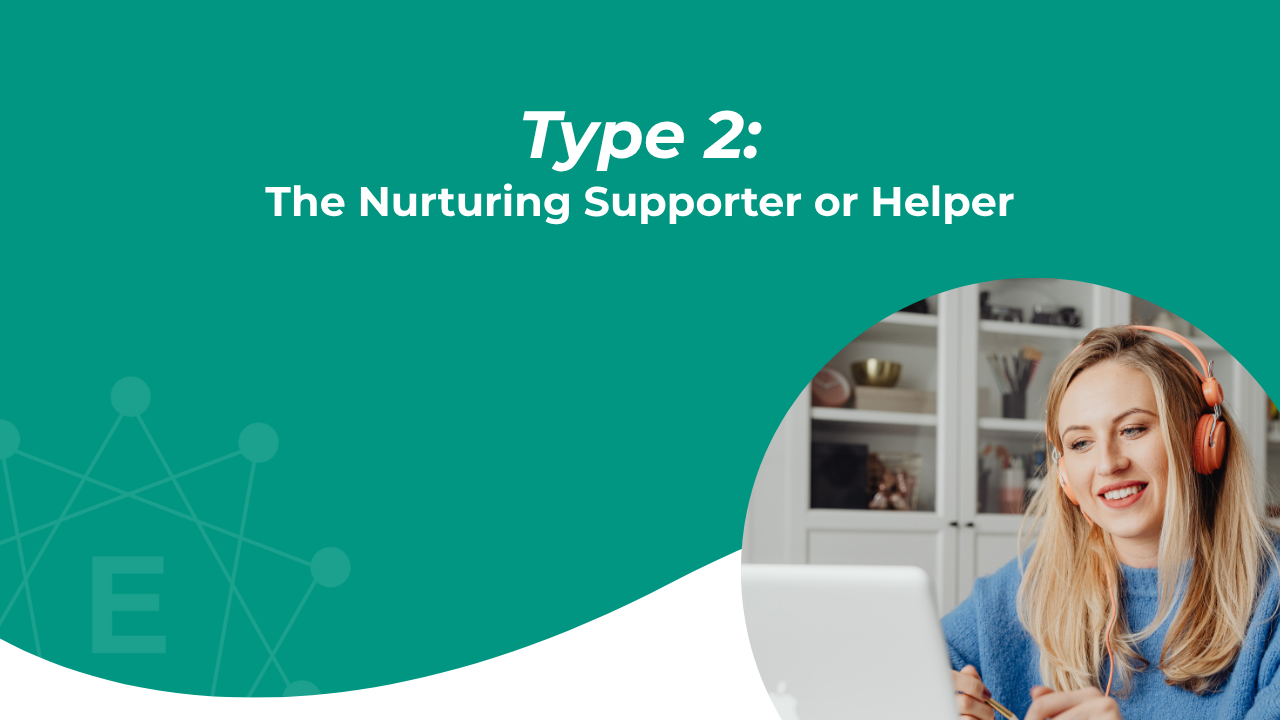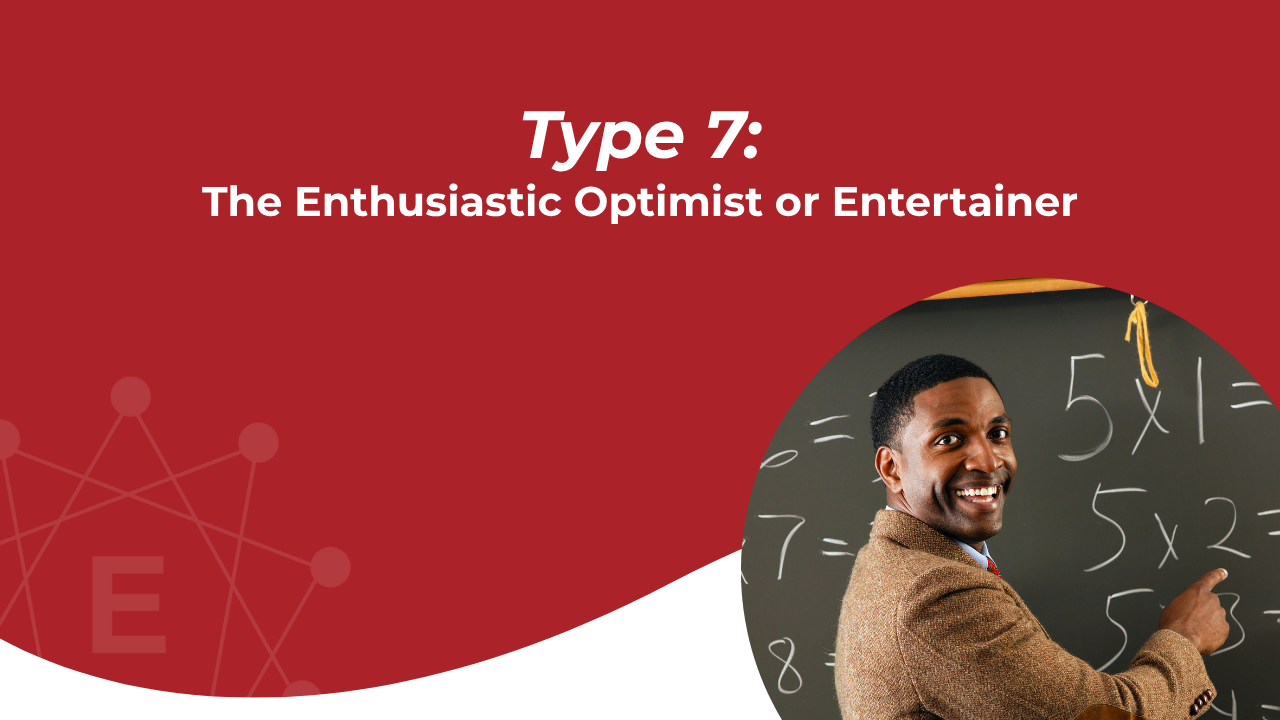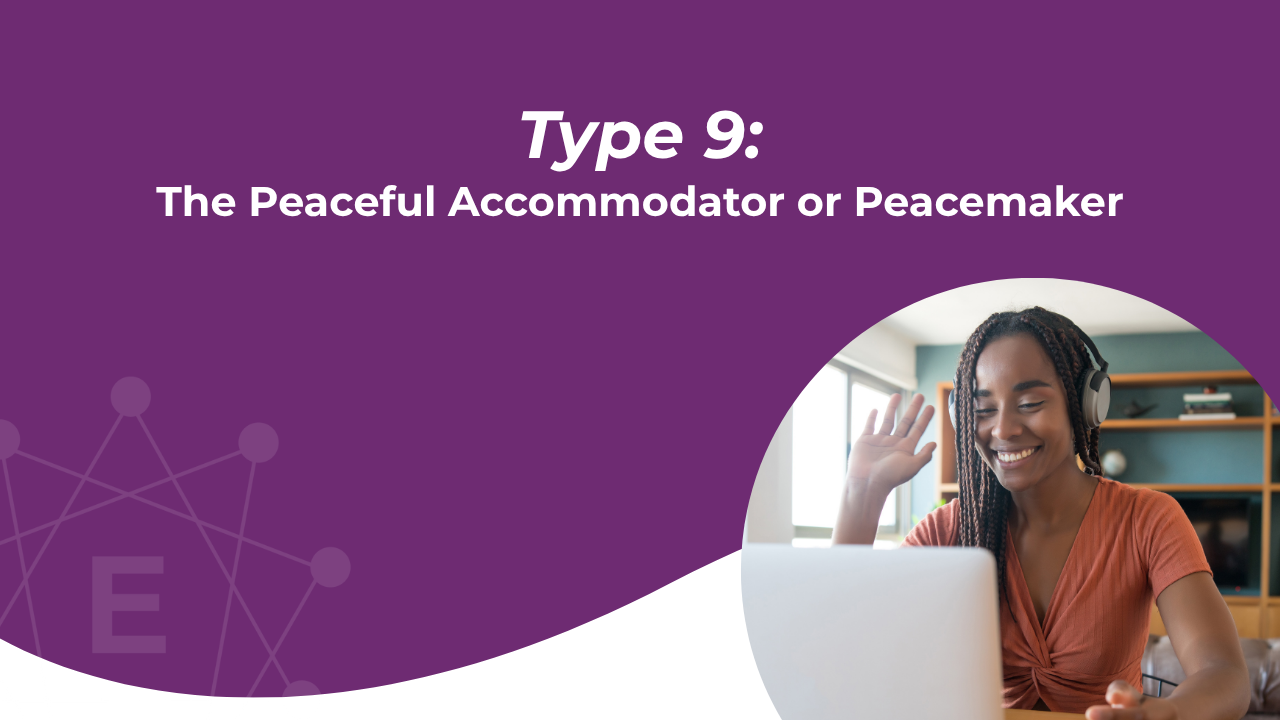From Self-Awareness to Success: The Enneagram at Work
Nov 05, 2025
Careers are about more than just a paycheck—we spend a huge portion of our lives at work. Whether it’s the daily grind, collaborating on projects, or leading a team, our work environment significantly shapes our experiences, relationships, and personal growth. Because we dedicate so much time and energy to our careers, understanding ourselves and the people we work with isn’t just helpful—it’s essential.
Take a Type 5 employee, for example. They are naturally analytical, focused, and independent, excelling at research and problem-solving. Without understanding why they might prefer working quietly or need time to process information, coworkers may see them as distant or disengaged. Once a Type 5 recognizes their natural tendencies and communicates their needs—such as having uninterrupted time for deep work—they can contribute fully while building stronger relationships with their team. This understanding benefits both the individual and the workplace as a whole.
Similarly, a Type 2 coworker may seem overly involved at times, constantly offering help or checking in on others. While some might perceive this as micromanaging or attention-seeking, the Type 2 is motivated by a genuine desire to support and care for their team. Recognizing this motivation enables colleagues to appreciate their contributions rather than misinterpreting them, thereby fostering collaboration and trust.
Even leadership styles can be better understood through the Enneagram. A Type 8 manager may come across as intense or demanding, but their actions are often rooted in protecting their team and advocating for fairness. They value directness and honesty, preferring transparent communication over hidden agendas.
Understanding personality in the workplace isn’t about “fixing” anyone; it’s about recognizing patterns, appreciating strengths, and navigating challenges in ways that benefit everyone. The Enneagram offers a clear lens to view these dynamics, providing insights that help people thrive, collaborate more effectively, navigate potential tension with empathy, and create an environment where everyone feels secure, respected, and valued.

Career Strengths:
Type 1s are responsible and dedicated, taking pride in high-quality work. They thrive on organization, attention to detail, and maintaining ethical standards. Their coworkers know they can rely on Type 1s to get the job done right, and their strong work ethic elevates the entire team.
Example: A Type 1 project manager notices small inconsistencies in a report and takes the time to correct them before submission. This saves the team from potential errors, miscommunication, and delays down the line, ensuring the project stays on track and maintains a high standard of quality.
Career Weaknesses:
The drive for perfection can make it hard to delegate, and Type 1s may struggle with self-criticism or burnout. Their relentless inner critic can make feedback feel harsh, and lingering on mistakes may create tension with coworkers.
Career Growth Path:
When Type 1s focus on strengths rather than flaws, they learn to delegate, build strong coworker relationships, and accept when “good enough” is enough. Owning mistakes fosters growth, efficiency, and a healthier work-life balance.
Career Strengths:
Type 2s naturally assume the role of nurturer, bringing warmth and care to any workplace. They notice when coworkers are struggling and provide encouragement and support, fostering collaboration and connection. Their presence often balances task-focused environments with human compassion.
Example: A Type 2 team member brings coffee for a stressed coworker and checks in with others to see how they’re doing. Their support helps maintain high morale and enables the team to work more effectively together.
Career Weaknesses:
Type 2s can take on too much responsibility in an attempt to gain approval, leading to burnout. When their contributions go unnoticed, they may feel hurt or withdraw support, which can unintentionally create tension.
Career Growth Path:
By valuing themselves beyond their helpfulness, Type 2s can set boundaries and prioritize self-care. This enables them to continue contributing authentically, thereby strengthening workplace relationships and fostering a positive team culture.
Career Strengths:
Type 3s are ambitious, energetic, and skilled at achieving goals. They thrive in leadership roles, inspiring teams with confidence, enthusiasm, and adaptability. Their focus on results motivates everyone around them.
Example: A Type 3 sales leader sets ambitious quarterly targets, encouraging their team to stretch their skills while celebrating small wins along the way. Their energy motivates the team to go further than they imagined possible.
Career Weaknesses:
Type 3s may become frustrated when others don’t match their energy, cut corners, or pursue careers for status over passion. Overwork and tying identity to success can create imbalance and stress.
Career Growth Path:
Shifting focus to team success and process rather than only results allows Type 3s to connect authentically, set boundaries, and use ambition to elevate others rather than just themselves.
Career Strengths:
Type 4s bring emotional depth, creativity, and authenticity to the workplace. They excel at inspiring others to connect with their feelings and ideas, promoting originality and meaningful work.
Example: A Type 4 designer notices the emotional tone of a brand campaign, suggesting subtle changes that make the messaging resonate on a deeper level. Their attention to authenticity elevates the final product.
Career Weaknesses:
Mood fluctuations can impact productivity, and Type 4s may struggle with envy or feeling unappreciated. Their emotions may sometimes distract them from task completion.
Career Growth Path:
Balancing emotions, valuing their own contributions, and appreciating the work of others allows Type 4s to collaborate effectively while maintaining their unique creative vision. They can inspire innovation and authenticity across the team.
Career Strengths:
Type 5s are analytical, insightful, and resourceful. They excel at research, problem-solving, and working independently. Colleagues rely on them for practical, well-thought-out solutions.
Example: A Type 5 software developer quietly tackles a complex coding problem, later presenting a solution that prevents potential failures. Their behind-the-scenes work keeps projects running smoothly.
Career Weaknesses:
Type 5s may withdraw to conserve energy, appear distant, or struggle to act decisively. Their fear of depletion may prevent them from sharing ideas fully.
Career Growth Path:
Trusting their knowledge and engaging more with coworkers allows Type 5s to share insights effectively, contributing to team success and fostering collaboration and innovation.
Career Strengths:
Type 6s are dependable, responsible, and excellent team players. They anticipate problems, plan ahead, and bring stability and security to their work environment. Their humor and loyalty boost morale, fostering a supportive culture.
Example: A Type 6 operations coordinator spots potential scheduling conflicts before they arise and proposes solutions. Their foresight ensures the team avoids last-minute chaos.
Career Weaknesses:
They can become overly cautious, experience loyalty conflicts, and struggle to delegate, which can create stress and self-doubt. The inner committee of concerns can feel overwhelming.
Career Growth Path:
By trusting their skills and focusing on supporting others, Type 6s find balance, overcome fear-based thinking, and foster stable, productive teams. Their commitment and warmth make them invaluable colleagues.
Career Strengths:
Type 7s thrive on variety, innovation, and creative problem-solving. They inspire teams with optimism, energy, and the ability to see opportunities in challenges. Setbacks are reframed as new possibilities.
Example: A Type 7 marketing strategist brainstorms multiple campaign ideas during a meeting, energizing the team to explore creative directions. Their enthusiasm sparks innovation across the department.
Career Weaknesses:
Type 7s may struggle with focus, procrastinate, or jump into projects prematurely. Negative feedback may be difficult to process, leading to deflection.
Career Growth Path:
Grounding themselves, taking responsibility, and appreciating achievements help Type 7s channel creativity into meaningful results. Their energy and innovation can uplift teams and encourage others to embrace possibilities.
Career Strengths:
Type 8s are decisive, assertive, and natural leaders. They bring determination, fairness, and clarity to any workplace, creating trust through transparency and protection of their team.
Example: A Type 8 department head confronts a policy issue head-on, advocating for employees’ rights while implementing changes that improve the overall work environment. Their decisiveness protects the team from unfair treatment and ensures everyone feels supported and safe in their roles.
Career Weaknesses:
Type 8s may struggle to compromise, intimidate coworkers, or prioritize personal goals over team needs. Impatience can lead to friction or conflict.
Career Growth Path:
Embracing compassion, vulnerability, and empathy allows Type 8s to create strong, supportive environments. Leading with both courage and care ensures the team achieves goals together.
Career Strengths:
Type 9s are patient, grounded, and skilled at mediating conflict. Their calm presence helps teams maintain harmony and focus, boosting overall productivity.
Example: A Type 9 HR coordinator facilitates a tense meeting, helping both sides feel heard and guiding the discussion toward compromise. Their mediation prevents escalation and keeps work flowing.
Career Weaknesses:
Type 9s may avoid conflict, procrastinate, or lose sight of personal goals. Merging too much with others can prevent them from fully contributing.
Career Growth Path:
By embracing their passions, asserting themselves, and engaging with challenges directly, Type 9s contribute fully while fostering unity and cooperation within the team.
Enneagram Collaboration in Action
The Enneagram allows teams to understand why people behave the way they do. By learning these patterns, workplaces become less about frustration and more about collaboration. Meetings are smoother, feedback is more productive, and everyone feels seen. Recognizing the motivations behind behavior can turn misunderstandings into opportunities for growth and strengthen overall team dynamics.
One of the most common places where personality dynamics are evident is during collaboration or team meetings. Small misunderstandings can quickly escalate when team members don’t understand each other’s motivations. For example, a Type 1 team member might correct minor errors in a report to ensure quality, which others could interpret as nitpicking. At the same time, a Type 7 coworker may rapidly propose new ideas, only to have them dismissed by a cautious Type 6 colleague. Without insight into these underlying drives, tension can mount, turning a productive discussion into a source of frustration.
Understanding the “why” behind these behaviors changes everything. Type 1’s attention to detail reflects a desire for excellence, Type 7’s enthusiasm stems from innovation and possibility, and Type 6’s caution comes from a need for stability and security. When teams recognize these motivations, they can respond with patience, clarity, and mutual respect, rather than reacting defensively.
This understanding improves day-to-day collaboration in tangible ways. Meetings run more smoothly, projects move forward efficiently, and minor conflicts are resolved before they become major issues. For instance, a Type 5 who prefers deep focus can be given uninterrupted time to analyze data, while a Type 3’s energy and drive can be harnessed to motivate the team. Type 4s bring fresh, creative perspectives, and Type 9s help mediate disagreements, keeping the discussion balanced and well-rounded.
By applying the Enneagram to collaboration, teams create a space where every voice is heard, each perspective is valued, and collective problem-solving becomes both effective and harmonious. When people understand each other, they can work together more seamlessly, turning meetings into opportunities for innovation, growth, and stronger connections.
Final Thoughts
The Enneagram isn’t just a personality tool—it’s a career compass. Every type has strengths to celebrate, weaknesses to manage, and a path for growth that benefits both themselves and their teams. Understanding these dynamics helps individuals contribute more effectively, leaders guide with empathy, and teams function harmoniously.
Investing time in learning your type and the types of those around you can transform your work life from stressful to fulfilling. By recognizing patterns, appreciating strengths, and communicating with insight, you can create a workplace where everyone thrives and contributes meaningfully.
The beauty of applying the Enneagram at work is that it mirrors life outside the office. When people understand why others act the way they do, they can approach relationships with greater patience and curiosity—whether it’s a manager guiding a team, a peer collaborating on a project, or a friend trying to see things from your perspective. Using the Enneagram in the workplace not only enhances communication and trust, but it also fosters habits of empathy and awareness that carry over into every aspect of life. The outcome is simple but powerful: more positivity, stronger productivity, and relationships—both at work and at home—that feel truly supportive and rewarding.
Ready to dive deeper?
We would love to share some free Enneagram resources with you.








